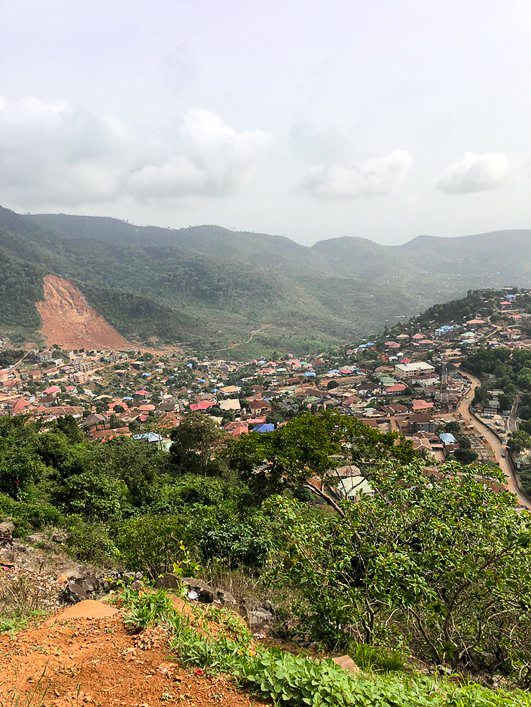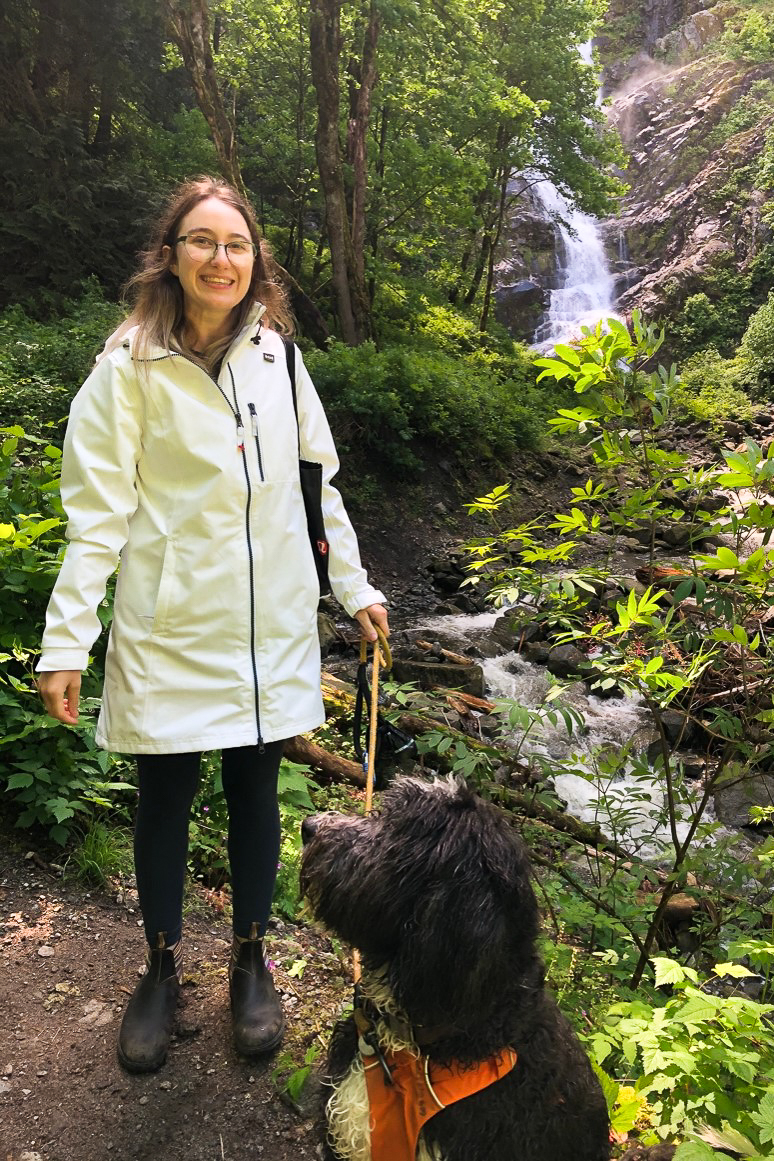In her final year of the BSN program, Julia Chalmers has a passion for planetary health.
“Planetary health examines how the declining health of our planet due to climate change, biodiversity loss, pollution, and food and water insecurity threatens the health of humans,” she explains. “Ultimately, those most vulnerable in our local and global communities – such as Indigenous peoples and those living in absolute and relative poverty – will be most negatively affected by climate change. To me, this makes climate change and planetary health a social justice issue, and therefore something that nurses need to be acutely aware of, and actively involved in.”
Julia tells the story of when she first saw the impact of planetary health with her own eyes in Sierra Leone. She had travelled to the West African country as part of a study tour in 2019, lead by Assistant Professor Catherine Smith.

During this tour, there was a day where the tour was led up a hillside that looked over the main city, Freetown. Here, Julia and her peers could see the remnants of an old mudslide from 2017 that had occurred as a result of increased extreme weather that was related to climate change. Over 1,000 people were buried in that mudslide.
“This was such a stark and horrific example of the relationship between the health of our natural ecosystems, and human health,” says Julia.
She also brings the point closer to home as she gives a more local example of the smoke we experience in BC as a result of wildfires each summer. The smoke from these fires exacerbates many respiratory conditions, such as asthma and chronic obstructive pulmonary disease (COPD).
To help make a difference in this subject, Julia has recently taken on the new role of Production Manager for Planetary Health Weekly – a free online newsletter that aims to inform the public about ecological wellness and global health. This newsletter is edited and published by Dr. David Zakus of Ryerson University & Dalla Lana School of Public Health.
Planetary Health Weekly has just celebrated its sixth anniversary, as the first issue was published on March 12, 2015. Since then, a new edition has been published every week.
Julia shares that the newsletter hopes to create needed change in the world by informing citizens of strengths and weaknesses of people and organizations around the world, as well as the impacts of their contributions to human development – both good and bad.

“My role within Planetary Health Weekly is in production,” she says. “David sends me the articles for the newsletter, and I write summaries of each article and help with formatting. I am new to the team and am supported by the other wonderful members.”
Everyone who works with the publication is a volunteer, and most are based in Ontario.
Julia explains that one of her main goals is to increase readership here in BC, and that she is excited to share this project with the UFV community.
While Julia’s passion and dedication are her own, she credits UFV and her instructors with pushing her outside her comfort zone and encouraging her to pursue opportunities like the one with Planetary Health Weekly.
“Of course, nursing within the hospital is a big part of the BSN degree at UFV, but there is also this whole world of public health and global health that is also shared with us throughout the program,” she says.
“To me, UFV provided me with the foundational understanding of key concepts like social justice and health equity, and then the encouragement to take this knowledge and apply it to the issues and projects I am passionate about.”
To those that are early in their careers, or even those that are still considering whether nursing is for them, Julia expresses her encouragement as she says “Nursing is an incredibly vast career with so many areas to explore. It can be incredibly difficult at times, especially the schooling, but remember the reason you got into it in the first place.
Remember to be compassionate always and challenge your thinking. Challenge yourself to look at issues or situations with a different lens than what you instinctually regress to and be aware of the unconscious biases you carry.”
In closing, Julia implores “Please, please, please subscribe to Planetary Health Weekly. I promise you will not regret it, and I guarantee you will learn something new each week.”
Those that are interested can subscribe on the Planetary Health Weekly website.
You can also read the most recent publication online.

